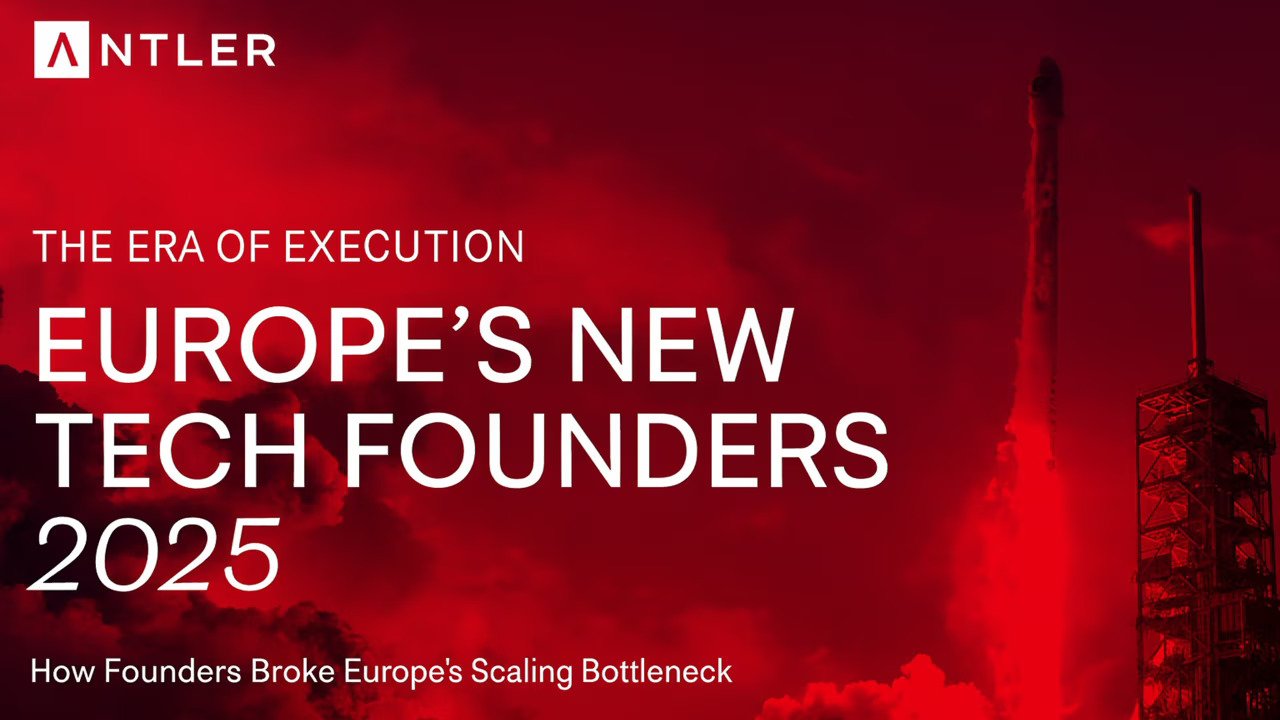A new report by Antler, published today reveals a new generation of ‘rocketship’ unicorns — tech companies, like Lovable, Mistral and ElevenLabs, that were founded since 2020 and have already achieved billion-dollar valuations — have disproved the myth that it is impossible to scale tech companies in Europe as fast as the US.
The report, Europe’s Era of Execution, is one of the largest studies of European founders ever conducted. It analyses 3,400 founders of 900 unicorns in Europe and the US, 35 founders of the fastest-growing software companies of all time, 1,200 Antler-backed founders, and 60,000 aspiring entrepreneurs.
Europe’s rocketship Unicorns
There are 14 rocketships in Europe. On average, they have taken two years to reach a billion-dollar valuation. This is significantly faster than the previous rate of 7.2 years. And they are keeping pace with the US, where the average time to unicorn is now 1.6 years.
Contrary to misconceptions that European companies need American capital to scale, two-thirds of the VCs backing European rocketships are from the local ecosystem. Accel is Europe’s most prolific rocketship backer, investing in Lovable, Fuse Energy and Helsing.
Christoph Klink, Partner at Antler, comments:
“We are seeing a wave of European rocketships led by a new generation of technical founders using AI to smash through Europe’s scaling bottleneck.
As a result, Europe is producing unicorns faster than ever before. In fact, two of the top five fastest-growing software companies of all time are now European (Lovable & ElevenLabs)."
He contends that while Europe may never match the US dollar-for-dollar in fundraising, “it can compete, and win, through relentless execution."
"The Execution Era has begun, and Europe’s founders are redefining what is possible.”
Rocketship Fuel - AI and Technical Founders
AI is the driving force behind the execution era. In a survey of 1,200 European founders, 93 per cent said that AI has allowed them to execute faster, with half saying AI allows them to move 5x faster than before. 85 per cent of companies have used AI to build their MVPs. And for products in full production, up to 40 per cent of the code is AI-generated, which is 3x higher than 2020.
And Europe’s unicorn founders are more technical than ever before. 90 per cent of the founders who started rocketships since 2022 have technical backgrounds.
In fact, Europe is now producing a higher share of technical founders than the US, where 80 per cent of unicorn founders since 2022 are technical. This is the first time that has happened.
Unsurprisingly, technical AI founders are the fastest-growing breed among founders starting businesses today.
Between 2023 and 2025, the number of AI engineers becoming founders in Europe increased by 14x.
And since 2022, the number of founders who previously held AI engineering roles has increased by 4x.
Europe’s challenges: London, diversity and Big Tech
Despite this momentum, the report highlights a number of hurdles that Europe’s tech ecosystem still needs to overcome: AI founder talent is not gender diverse: Europe has only produced one female AI unicorn founder, and none of the AI unicorns in the last five years have female foundersRocketships are leaving London behind: only one rocketship has come out of London, raising questions about the future dominance of the world’s third largest tech ecosystem.
Europe needs big tech engine rooms: 50 per cent of US rocketship founders hail from big tech companies, whilst only 30 per cent of European founders do
The Lovable Effect
In the study of 1,200 European founders, when asked to name a tech company they admired the most in the world, 40 per cent named Lovable.
80 per cent of founders said they wanted their speed of execution to be faster.
And, for the first time, speed of execution (44 per cent) has overtaken access to funding (40 per cent) as the biggest challenge facing European founders.
Rocketships such as Lovable are driving increased velocity in Europe that is also being seen at the early-stage. Startups founded in the last year in Antler’s European portfolio get to first revenue 3x as fast, and generate up to 10x more revenue in their first year, compared to startups founded three years ago.
Anton Osika, co-founder of Lovable, comments:
“The speed at which AI capabilities have been advancing mean we couldn’t have launched Lovable a couple of years ago. We have focused on building in a capital efficient way that is very common to Europe but doesn’t fit with the traditional US startup playbook.”
Marius Meiners, co-founder of Peec AI, comments:
“In the AI space, the companies that win are the ones that scale the fastest. Now more than ever, most ideas with potentially huge outcomes are fairly obvious.
Working on these ideas where you might face 50 competitors requires more than just the belief that “I can build a big company.
You need a deep conviction that you can outperform everyone else, and then the discipline to execute on that belief.”



Would you like to write the first comment?
Login to post comments